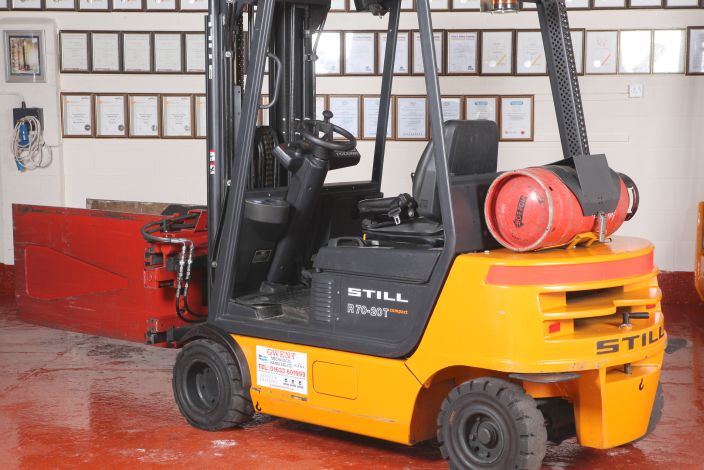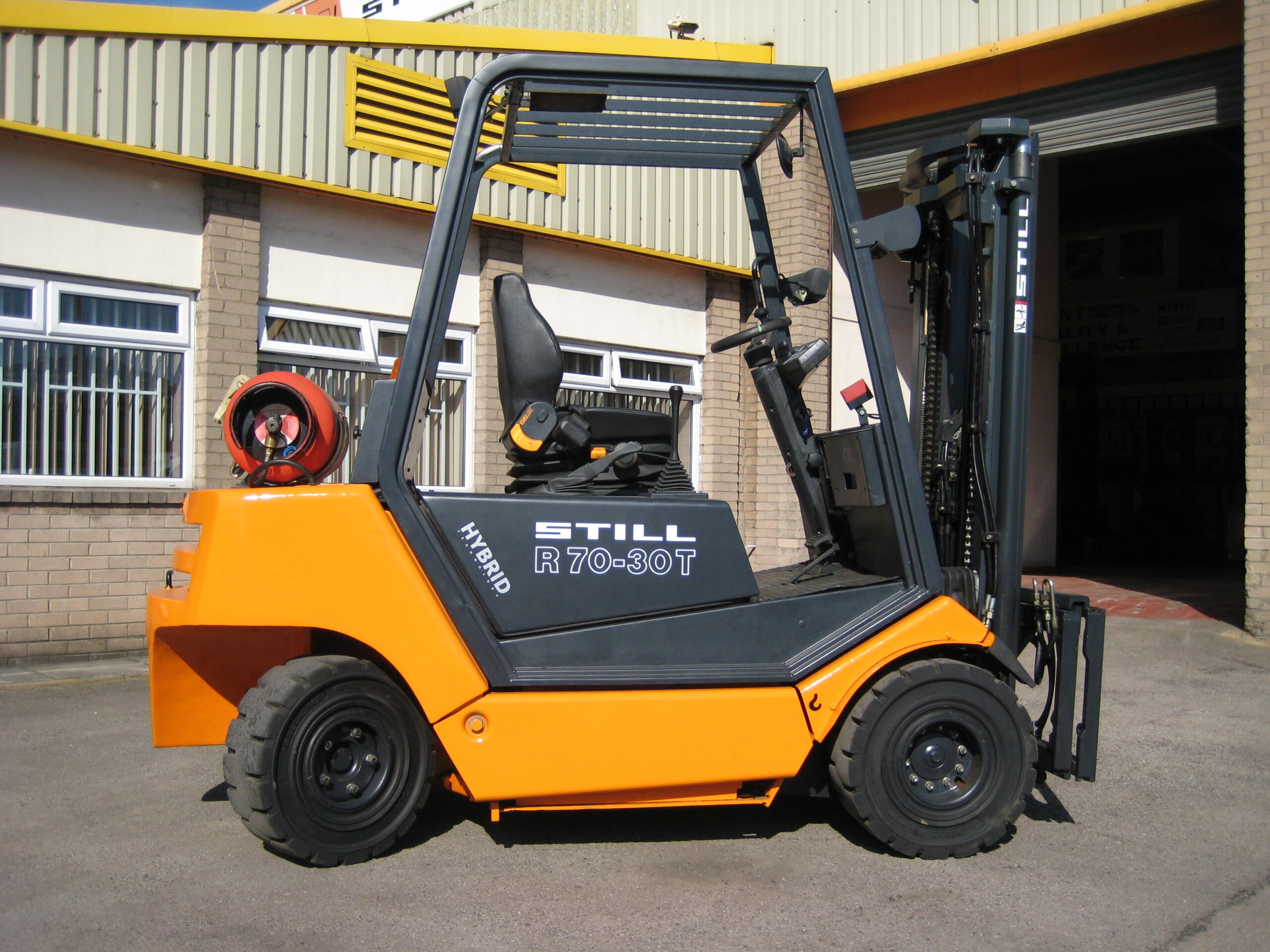Electric Forklift Vs. Gas Forklift
Choosing the best forklift for your workplace is not easy, even for experienced operators. You have to decide between a used forklift vs. a new forklift and of course the fuel type.Two of the most popular engine types are gas and electric. So which is better, an electric forklift or gas-powered? To help you decide which type of lift truck is best for your needs, let’s review the pros and cons of each.
Why choose an electric-powered forklift
Before you buy an electric forklift, it’s generally, a great idea to conduct a lot of research. Researching will enable you to learn about the machine and how they perform in contrast to gas forklifts. Key reasons why businesses often go for electric forklifts include:
• Good for environment
Electric trucks don’t release emissions into the air that can harm living beings or the planet. These machines are also quieter than gas-powered forklifts because of the battery source, making them perfect for indoor businesses like food processing, warehouses, or other industries that are sensitive to fumes.
With electric-powered forklifts, employees aren’t forced to breathe in harmful fumes and the lower noise level definitely makes a safe working site.
• Need less maintenance
Electric-powered forklifts require less maintenance, thanks to their lack of engine turn-ups and spark plugs. Maintenance requirements usually extend to their drive motors, battery, and the other moving components like the mast. So this means fewer parts to replace and service, reducing maintenance costs and downtime for your business.
• Improved visibility
Worksite safety can be improved because of the fact that electric trucks don’t have a fuel tank or gas. This means the operator has a greater vision of what is around him.
Without a doubt, vision from behind is something that is vital and is key to worker safety in any factory setting.
• Smaller turning circle
• Reduced cost
Reduced cost is one of the main reasons why electric trucks are too popular. With lower fuel costs, these machines do the same work -or even more – at a lower operating cost.
Reasons not to choose an electric forklift
With the above impressive pros, it is difficult to imagine that they are any cons regarding electric forklift, but there are a few. They include:
• Higher initial investment
Electric-powered forklifts aren’t as affordable upfront as gas equipment. But their approximated operational costs reduce over time when compared to estimated fossil fuel costs in the future.
• Environmental challenges
• Battery charging
For busy companies, the biggest drawback can be the limitation of the machine’s battery. Traditional lead-acid batteries need longer cooling cycles and charging between shifts (8 hours to cool, 8 hours to charge). This makes them perfect for single or two-shift businesses.
When to buy an ICE or gas forklift
Before discussing the pros of using gas-powered forklifts, you should know that diesel and gasoline trucks have slight differences, although their operational functions are essentially similar. But the comparisons made here will only be between using an electric or gas-fueled forklift.
Gas forklifts are powered by liquefied petroleum gas (LPG) and are the most widely used forklifts. Below are reasons why you should choose a gas forklift.
• Affordability
• Versatility
Gas lift trucks are rugged and sturdy, making them ideal for lifting heavier warehouse assets and for outdoor use. The structural integrity of these machines allows them to withstand harsh weather conditions and uneven terrain.
They can travel at high speed and are highly maneuverable and acceleration levels that outperform electric forklifts. Also, since they don’t require charging, gas-fueled forklifts can operate night or day, and refueling them is easy and quick.
Reasons to avoid gas forklift\ ICE
Gas lift trucks do have a few potential disadvantages, and many of them come back to cost. They include:
• Outdoor-only use
Gas lift trucks are noisy and are unsafe to use indoors because of the high levels of carbon monoxide or CO created from the exhaust fumes. This makes them not safe for use in food and beverage operations or sensitive populations.
• Parts replacement costs
The ICE has many parts that require replacing over time. The variety of liquids and parts required to operate an ICE (internal combustion engine) also increases the risk of spills, leaks, and breakdowns. Regular maintenance will be needed to keep a gas forklift in great working condition.
• Higher fuel costs
Crude oil prices typically make up 71% of the gasoline price, and oil keeps rising in price. Standard gas-powered trucks can only run for up to eight hours and constantly needing to buy fuel can increase a business’ annual budget. Don’t forget that most gas-powered forklifts have no built-in gas gauge and this makes it difficult to monitor tank levels for fueling.
Conclusion
By looking at the comparisons between electric and gas forklifts, the conclusion in a forklift purchase choice comes down to a business’ needs. So based on a business’ budget, daily operations and assets, one lift truck’s performance may provide better efficiency and long-term investment.
Shirley Mist has been involved in fashion and design for many years. She has also written extensively for many online publications. She currently writes for The Tribune World and is a valued member of our team.

